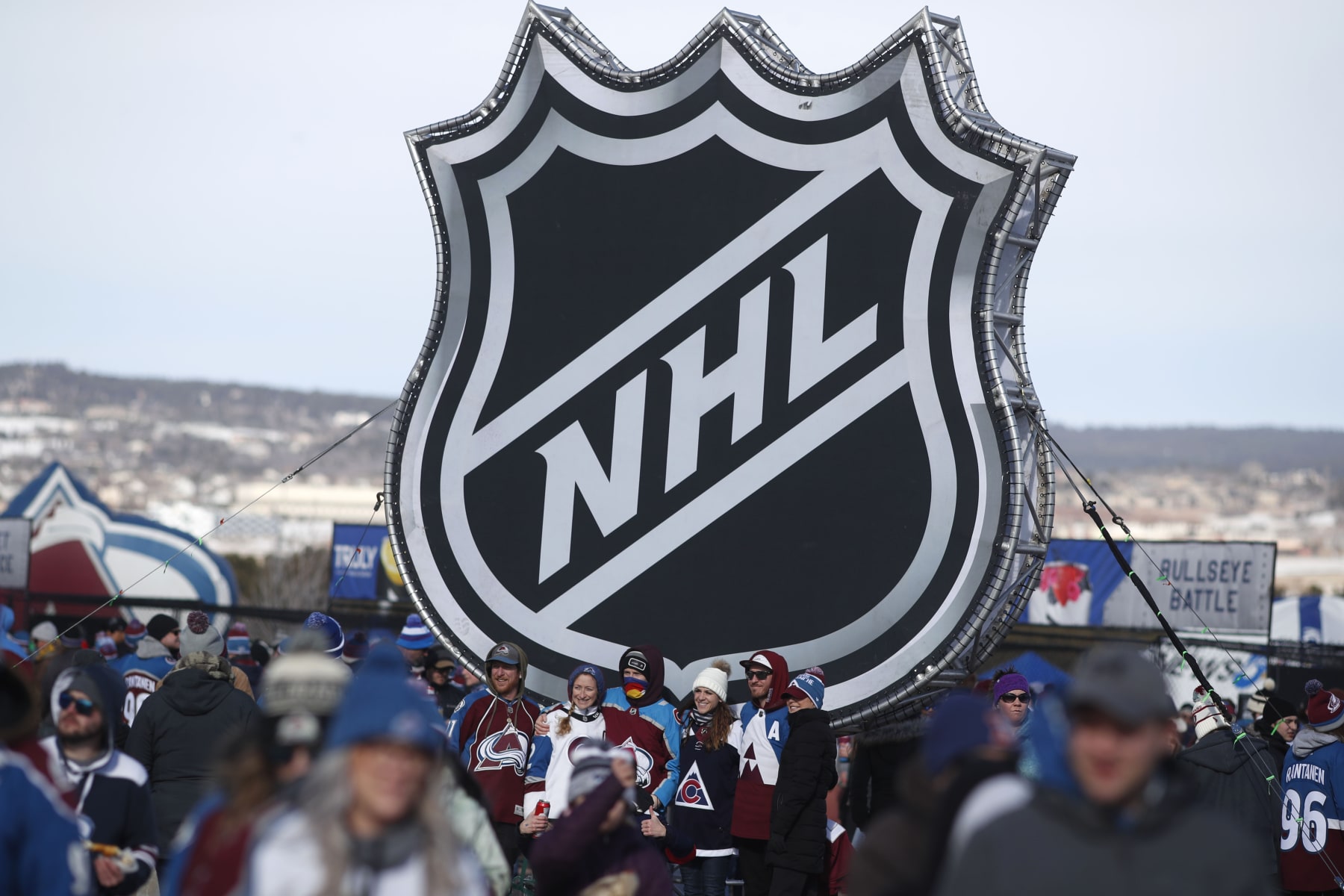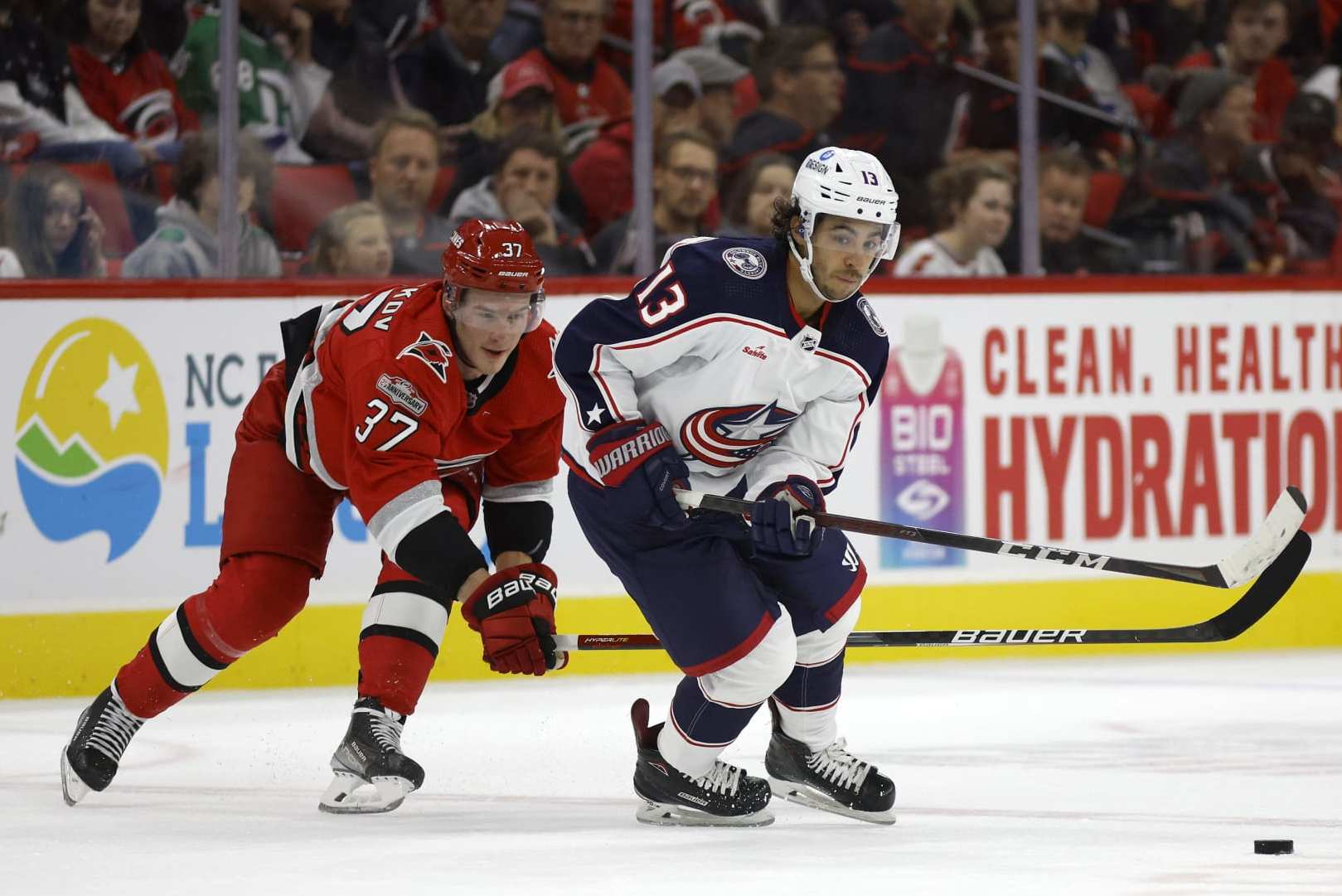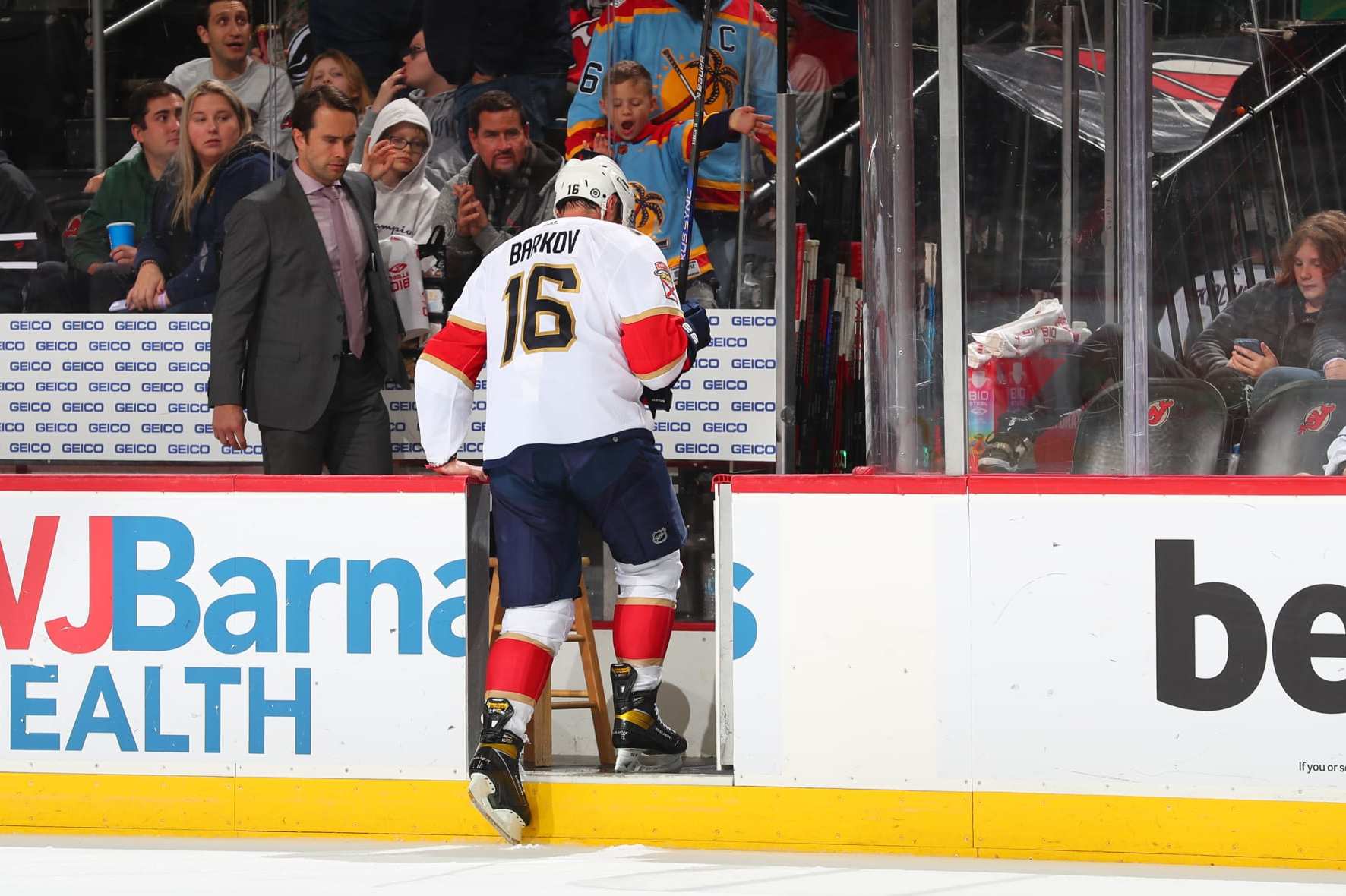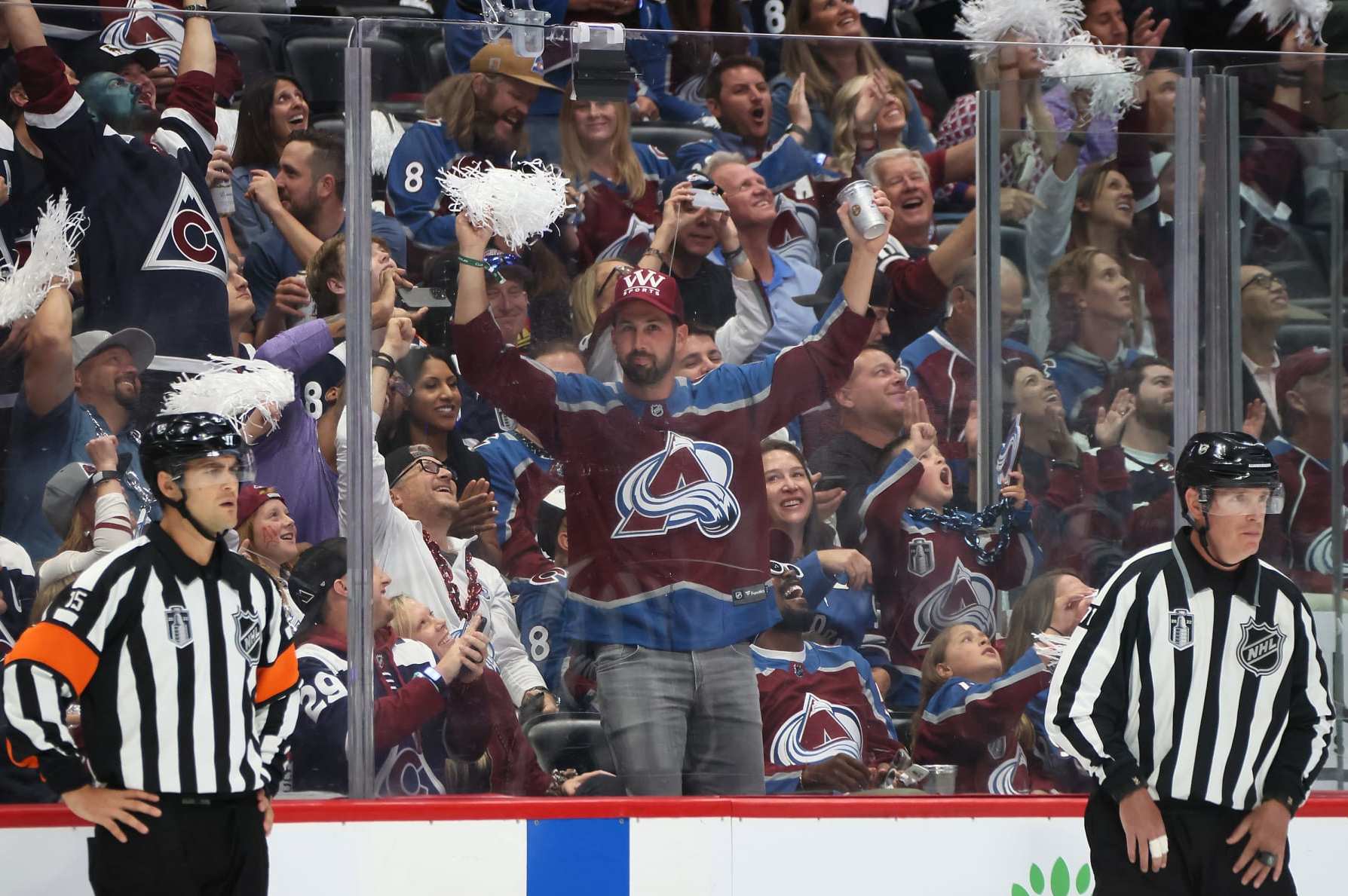B/R NHL Roundtable: In Favor of the NHL's Rumored 84-Game Schedule?
B/R NHL Roundtable: In Favor of the NHL's Rumored 84-Game Schedule?

We might be getting more NHL regular-season hockey in the future.
According to ESPN's Greg Wyshynski, the league has internally discussed the possibility of expanding the 82-game regular-season schedule to 84 contests. Adding two tilts would mean each team could play its division rivals more often, which—in theory—would be more attractive to hockey fans.
Fierce division rivals such as the New York Rangers and New York Islanders are only facing off three times this season, something that fans and critics have complained about.
But is adding more games the best way forward for the NHL?
We called together another NHL roundtable to get our experts' opinions on the matter.
What's your view? Sound off in the comments section of the app to give us your take.
Yes to More Regular-Season Games If We Cut Down on the Preseason!

The idea of playing 84 games seems foolish on its face, but this isn't foreign territory for the NHL.
The league wants to boost rivalries artificially by adding two divisional games. I'd like to believe everyone knows it's the playoffs that create rivalries. But hey, maybe one more game between Carolina and Columbus or Arizona and Chicago will make those powder kegs explode.
Making it so teams play one another four times per season within the division, however, makes all the sense in the world. It's not boosting rivalry potential so much as it is making the competition even. That's smart and the whole reason to have an even number of teams in each division.
If this setup helps streamline travel for teams the way it should, that's a big win for everyone. Road trips are a grind, especially for Western Conference teams. Easing travel stress makes everyone happy and, ideally, makes the games better and more competitive.
There's also the cutback of preseason games, which is a massive win for everyone from team executives down to the fans. Some teams in recent seasons played as many as eight preseason games. That's bonkers.
Preseason contests mean the most to players on the bubble and rookies. Most teams only have a couple of spots up for grabs, if even that many, and most coaches know what their roster will be the day camp begins.
Fewer games mean fewer chances for an injury to occur, and the reduction means fewer nights of trying to figure out a way to watch a game that's probably not being broadcast normally in the first place.
There's also the historical part of all this. In the 1992-1993 and 1993-1994 seasons they played 84 games with a 24-team league. Now, there are eight more teams and those games can be spread out a little easier.
They also won't play those extra games at neutral sites as they did in the '90s. Well…unless there's a plan to add more outdoor games or games in Europe or elsewhere.
—Joe Yerdon
A Hard No for More Regular-Season Games

The NHL's 82-game schedule is already too long.
The tail end of the season is a grind. There are some worthwhile storylines, such as post-trading deadline roster makeups and playoff slotting. For the most part, though, it's a tedious process that everyone is waiting on to end.
The losing teams have almost nothing to play for and fans mostly want to be put out of their misery. Flyers and Blackhawks fans would probably vote to end the season today if they could. Adding two games to the schedules would only inflict more despair.
Meanwhile, the concrete playoff teams are basically in a holding pattern until the postseason begins. Games are structured largely as pseudo-practice sessions where players can keep up their fitness and work on tactical nuances. One injury to a noteworthy player during this stretch does way more harm than any good that can come out of these games.
Basketball, baseball and soccer teams have invested heavily in sports science and now prioritize load management. They proactively limit the playing time for top players in order to reduce injury risk.
Hockey, meanwhile, continues to push its players through an entire 82-game season despite some playing through discomfort. We see the effect of this during the playoffs when teams start reaping what they had sown. Players are hampered by injuries that didn't heal during the regular season, while others' bodies break down from the accumulated wear and tear.
Too often playoff outcomes are dictated by which teams are healthiest rather than by which teams are the best.
The NHL regular season already accomplishes what it sets out to—arguably with room to spare. Adding two games will offer negligible benefits while dragging out portions of the season that everyone is ready to move on from while also risking the health and mobility of the very players whose skills sell the game to a national audience during the playoffs.
—Adam Herman
82 Games Is Already Too Long; Why Do We Need 84?

There is a CVS receipt-sized list of minor to major adjustments the NHL could make to improve the fan experience. My personal wish list includes staggering puck-drop times, fixing the new, glitchy digital board ads and changing the playoff format in various ways.
The league heard these popular qualms and said: "Nope, sorry. Best we can do is consider extending the regular season from 82 to 84 games."
As mentioned, the motivation here is more divisional rival matchups. But one of the best things about hockey is how genuine the passion is, and that is clear every time we try different things to manufacture more of it. Sometimes the beauty of the game is enjoying those pockets of serendipitous passion as they come.
There's always the Battle of Alberta and longstanding rivalries, but the on-ice passion between these franchises fades in and out depending on how the teams are doing while new, mini-rivalries can pop up during a season.
Besides, many NHL players I know think the 82-game regular season is already more than enough. By the time the playoff picture becomes clear, you're trying to walk the line between staying in peak conditioning and avoiding injury.
There's a chance adding games to the regular season will dilute the on-ice product of rivalries, especially when playoff-bound players are trying to avoid fights and other unnecessary extracurriculars ahead of the postseason.
The juice just isn't worth the squeeze when there are more urgent problems with the fan experience, and there are more efficient ways to implement rivalry experiences than tacking on two games to an already long regular season.
—Sara Civian
Games Should Be Added...But Not in the Regular Season

At a first glance, adding two games to the regular season, including additional divisional matchups, sounds like a real winner. After all, you can't get tired of Penguins-Capitals, right?
But then there's the other side to the coin. You might be adding Pens-Caps games, but you're also adding Blackhawks-Coyotes matchups. In future years, that might be fun. In the foreseeable future? Not so much.
What about when we get to the latter stages of the season? Will it really matter to fans of teams well out of the playoffs that they get to see their tanking squad play two more times? It's all fun if you're fighting for a playoff spot or a division title, but as a fan of a team out of the race? Also, not so much.
And let's not forget the physical aspect of adding two games to the schedule of a sport that sees intense physicality every night, if not every shift. Is it worth it?
What the NHL should do is take a page out of the NBA's playbook and have some sort of play-in round. The NBA's experiment of a play-in tournament has been a huge TV ratings success, and it isn't going away anytime soon. Why not do something similar for the NHL?
You add dates that will matter to both teams. We won't have two added games between teams that would rather lose those matchups to improve their lottery position.
The extra revenue from those games means there's a good chance that the salary cap goes up. With the NHLPA needing to sign off on any schedule changes, that would be music to the players' association's ears.
So, yes, let's have more hockey. But let's have more meaningful hockey too.
—Lucky Ngamwajasat
Fewer Games Should Be Played, but Let's Have More In-Division Matchups

Make no mistake: We all love hockey. It's why we're doing what we're doing.
I've been a fan since watching the French Connection line in Buffalo in the mid-1970s and was lucky enough to hitch my wagon to a kid named Gretzky when he put a "City of Champions" called Edmonton on the NHL map.
And though my Oilers fandom has yielded little more than angst in the generation since No. 99 left for the coast, I still have a son named after Ryan Smyth, two Gretzky rookie cards on a shelf and a closet full of blue-and-orange sweaters to remind me of better days.
I'm as invested as it gets and even I don't need any more than 82 games.
I understand the reasoning in favor of it. Games mean revenue. And revenue is a positive. Tickets are bought. Salaries go up. Economies get stimulated. Everyone wins.
But if you told me tomorrow that the league would cull the schedule or stay at 82 games, I'd be OK with it.
I don't need Buffalo-Arizona, Philadelphia-Winnipeg or Edmonton-New Jersey. Save the haggling over whether teams should play division rivals three or four times apiece and go to a nearly exclusive in-conference schedule, with just one game per year against the guys on the other side with an alternating home-ice rotation.
Yes, that'd mean Connor McDavid is only in Raleigh and Sidney Crosby only heads to Seattle every other year. But it also means, in an 82-game schedule, you'd play 66 times against the same teams you'd see for three-quarters of the playoffs, which builds the sorts of rivalries that galvanize fanbases and makes the Stanley Cup Final more special.
Play six games against each team in your division (42) and three games (24) against each team in the other division in your conference and the math checks out. And to those forever worshiping the gods of revenue, the savings on air miles and hotel expenses from the adjusted schedule will go a ways toward offsetting the absence of another date or two.
And if there's a buck or two left over, feel free to take care of the guy with the idea too.
—Lyle Fitzsimmons
